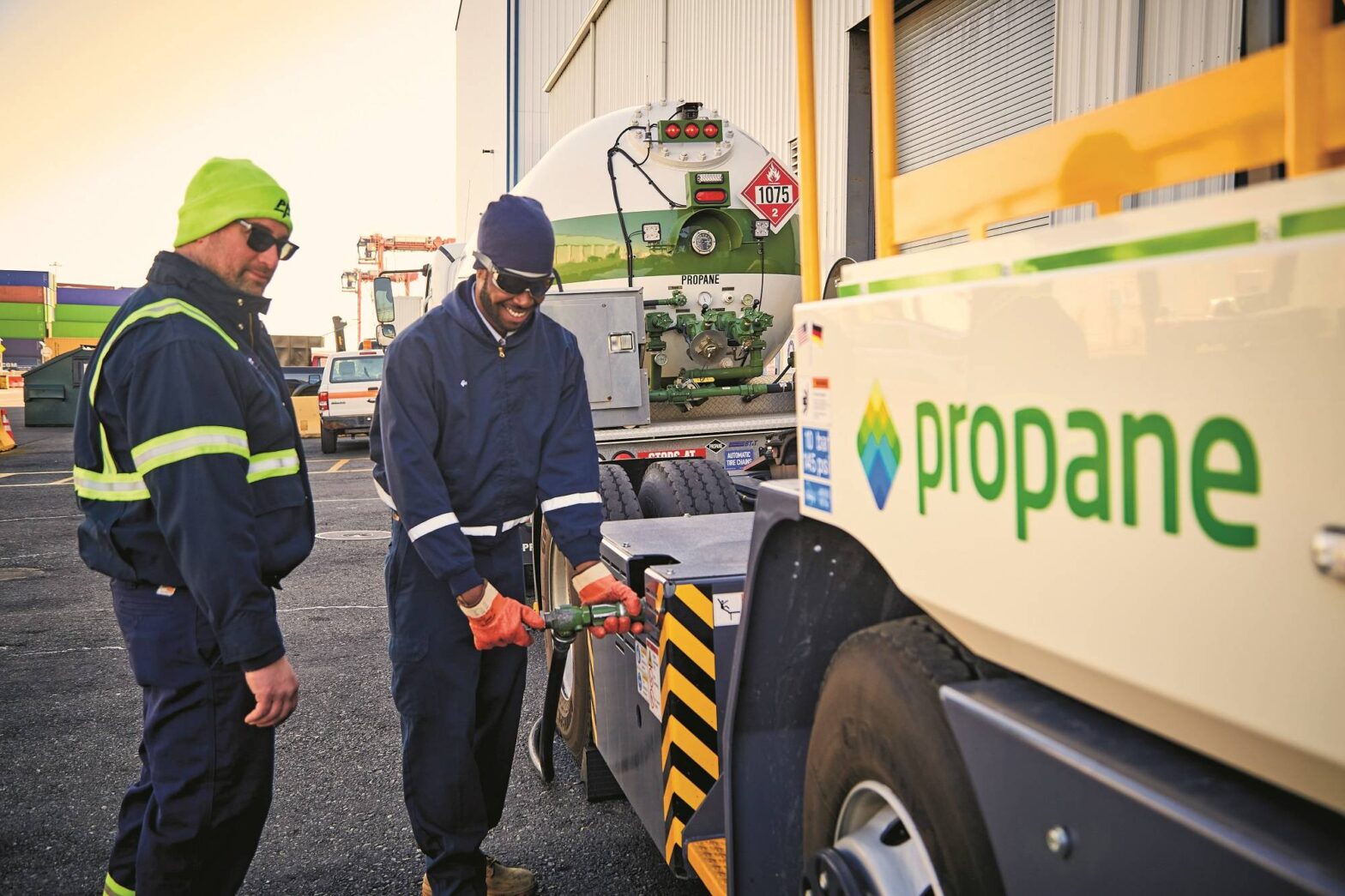Propane-Powered Ports: Clean Energy Solutions

Revolutionizing Port Sustainability: Propane-Powered Solutions
As emissions regulations grow more stringent for ports, transitioning away from traditional fuels like diesel and gasoline becomes imperative. Port authorities and terminal operators are increasingly turning to alternative energy sources, with propane emerging as a viable and eco-friendly option. Propane offers the capacity to power essential port equipment, including yard tractors, forklifts, and cargo handling equipment (CHE), enabling ports to achieve their emissions reduction objectives effectively.
The Propane Education and Research Council (PERC) frequently receives inquiries about port-side refueling infrastructure and the transition to propane-powered terminal equipment. Here, we explore the world of port-side refueling options and energy storage solutions.
Diverse Refueling Choices
Recognizing the unique needs of ports, propane suppliers offer tailored refueling plans that cater to various scenarios. Whether a terminal operates a modest fleet of yard tractors and forklifts or boasts an extensive shore power setup with generators, flexible combinations ensure efficient and accessible refueling across the port.
1. On-Site Refueling
Centralized refueling locations provide unparalleled convenience. With on-site refueling, a local propane supplier delivers propane directly to the port. Port authorities can purchase the equipment or opt for a lease arrangement with the supplier, securing a fixed fuel price per gallon for a mutually beneficial duration.
On-site refueling stations feature substantial fuel storage tanks with pumps, meters, and multiple dispensers. This option is particularly advantageous for expanding fleets, as it offers full customization and scalability without necessitating electrical or site upgrades. During the construction of permanent stations, many propane suppliers also establish temporary refueling sites to cater to fleet needs.
2. Temporary Refueling
Temporary refueling setups prove invaluable when a port authority or terminal operator requires refueling sites dispersed throughout the port but is not prepared to construct multiple permanent stations. These setups consist of a dispenser, pump, and a fuel storage tank mounted on a trailer. Local propane suppliers own this equipment, allowing fleets to refuel using the tank and dispenser for the required duration. Temporary refueling setups are ideal for expansion initiatives or repairs, as they can be conveniently stationed at work sites, reducing refueling trips and downtime.
3. Mobile Refueling
For operations spanning vast areas, mobile refueling offers an effective solution. Port authorities can collaborate with propane suppliers to devise an on-site refueling strategy utilizing a propane bobtail delivery truck. Costs and logistics may vary, so consulting with a propane supplier is advisable for comprehensive details and pricing.
Efficient Footprint
Port terminals typically store fuel in above-ground storage tanks, complemented by refueling cargo handling equipment through mobile units. Shelf-stable energy sources like propane are well-suited to these environments. Larger ports may maintain up to 100,000 gallons of reserve fuel on-site, providing a buffer against supply disruptions.
Propane refueling setups demand minimal infrastructure upgrades and space, aligning seamlessly with port operations. A propane tank’s space requirement approximates that of existing diesel refueling pads. Propane offers a range of refueling configurations as a clean energy source, enabling port authorities to take substantial strides toward achieving their emissions reduction goals.
















